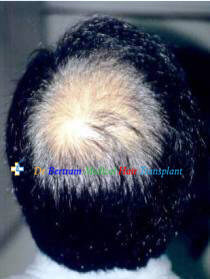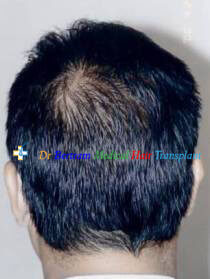
Who Should Consider hair Transplant?
Indications
Androgenetic Alopecia (Male pattern Baldness)
Over 95% of men with hair loss are suffering from Androgenetic Alopecia (AGA). Typically some donor hair will be left at the back of the head, making it possible to consider hair transplant. Hair Transplant is the best option to fill-in the front hairline; and to thicken the front half of the scalp.
Scarring Alopecia
The scarring can be from injuries or after surgery.
Who are Good Candidate?
Anyone who has experienced permanent hair loss may be a candidate. Patients with light-colored hair and pale skin (as opposed to dark hair and light skin) and those with curly hair may appear to have a denser look, requiring fewer sessions. Expectation must be realistic. While hair transplants look very natural, the end result may not achieve the density or total coverage of that of a teenager. Results can also vary from patient to patient. The patients have to accept that a second procedure may be needed in the future to catch up with progressive loss of existing hairs, and to achieve the desired density.
Surgical Plan for Class II to IV

Norwood Class II
Thinning in area 1 - Relatively easy job and welcomed by many small hair transplant centers as only a few hundreds grafts are needed. We do not recommend for those younger than 25. Further hair loss in area 2 will make the transplanted hair in area 1 stand out like horns, very difficult to repair.
Can only be considered if:
• No family history of severe hair loss
• Willing to take medicine to slow down AGA
• Great psychological distress from hair loss
• Prepared to have further transplant to add on density
• Celebrities who must maintain a young look and accept the consequences
Norwood Class III
Losing hair in area 1 and 2 - good candidates for hair transplant and with good result. First priority is just to fill in area 2, reserving some donor hair for future. Area 1 can easily be covered with the newly transplanted hair. (Pictures Below)
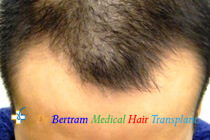
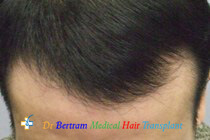
Must Read : How We Restore Hairline in Men >>
Norwood Class IV
Losing hair in area 1, 2, and 3 - this is the best candidate for hair transplant and with the most obvious improvement. A higher density will be put into area 3 (the forelock) while lower density of 1-hair graft into area 2. The hair in forelock can be combed forward or backward, allows more flexibility in styling. (Pictures Below)
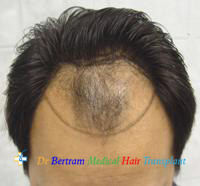
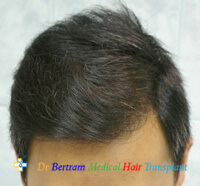
Norwood Class V
Losing hair in area 1, 2, 3, and 4 - treatment is similar to Class VI except area 4 is the last priority. This area is only visible on nodding or bending, requiring a lower density, or not at all if not enough donor hair. Further session is optional. (Pictures Below)
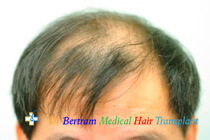
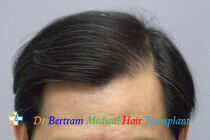
Norwood Class VI
Losing hair in area 1 to 5 / 5v - usually not enough donor hair to cover the entire area. There are 2 options:
• To fill in area 2, 3, 4 to look good in the front. This is suitable for tall people.
• To fill in area 3, 4, 5, 5v to look good in the top. This is suitable for short people.
• The remaining areas can be left alone or filled in later. (Pictures Below)
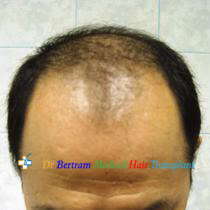
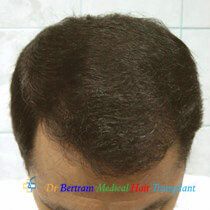
Norwood Class VII
Losing hair in area 1 to 6 - impossible to fill in all areas. You can still look good by adding some hair into the forelock Area 3. (Pictures Below)
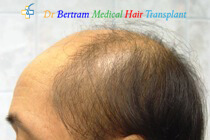
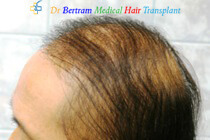
Vertex Variant
This group loses hair in the crown (area 5v, 5, 4) and retains the hairline (area 2, 3). Hair can be transplanted into area 4 and 5 to achieve good coverage.(Pictures Below)
